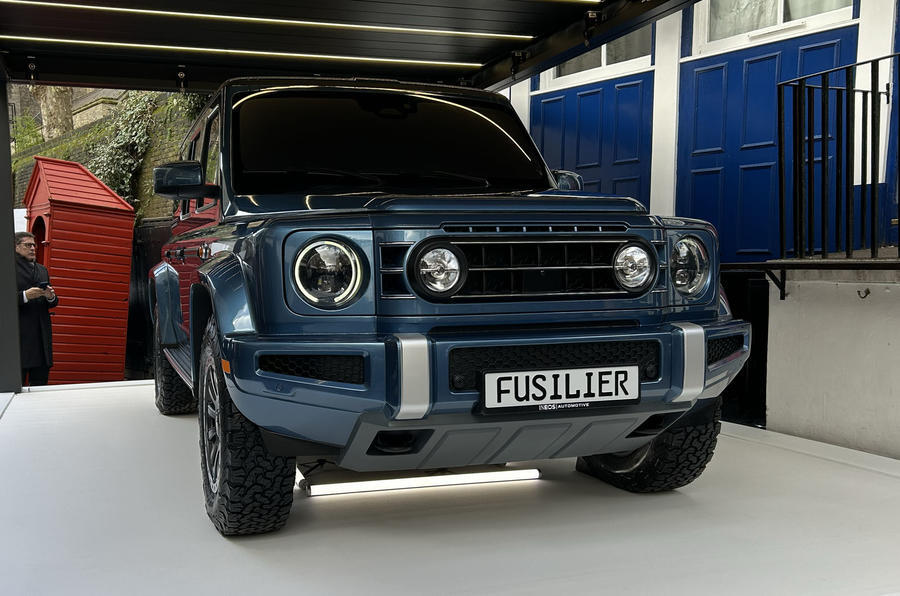Ineos Automotive will “not just follow the sheep” and focus on solely battery-electric powertrains for the future, remaining open to all different types of fuels.
That’s according to founder Sir Jim Ratcliffe, who used the debut of the new Ineos Fusilier to call on UK and EU legislators to keep a much more open mind to other powertrain types beyond EVs and focus instead on the wider goal of reducing carbon emissions without pricing buyers out of the market and removing choice for them.
“Part of what we do at Ineos is question all the time, not just follow the sheep,” said Ratcliffe.
While the Fusilier does feature an EV drivetrain, there will also be a range-extender version with a small petrol that will function as a generator for powering the electric motors.
“Consumers should have a choice,” said Ratcliffe. “We can’t force them. At the moment, they’re voting with their feet and not buying [EVs].”
He pointed out that the US takes a different view to Europe in focusing on the wider goal of reducing the emissions of road transport towards net zero, rather than legislating in favour of one particular technology before the market might be ready.
“In the US, the trend is going down and the carbon footprint improves each year," he said. "There’s no issue with decarbonising the fleet, but we can’t be too idealistic. If we’re seeing an improvement, that’s not a bad thing. You can’t just go for the ideal solution.”

Ratcliffe doesn't agree with the UK’s stance on having regulated solely in favour of EVs and not leaving the door open for other powertrain technologies.
Ineos Automotive CEO Lynn Calder said that the REx version of the Fusilier would be classified as a hybrid and therefore banned from UK sale in 2035 as things stand currently.
“We think that’s nuts, as it’s a car and technology our owners would want to buy,” she said, confirming that Ineos would be “working hard” with the government to try to ensure that isn't the case.
She added: “We need a mix of powertrains. A car with 25% of the emissions of a ICE car: why would we not want that? We will work hard to not see it banned.
“We’re in 43 markets, and not all of them will go to EVs, and all of them have different needs. Not all are as evangelical as the UK.”








Join the debate
Add your comment
Oh, and "the sheep" are the traditional car makers who didn't see EVs coming and are now freaking out as they lose market share to Tesla and Chinese electric cars. And the traditional car makers are exactly the people that Ineos is following with its antiquated Grenadier. Ratcliffe's world is the exact opposite of reality.
Internal Combustion is not over, says oil company boss. Well he would say that, wouldn't he? Meanwhile, how much pollution is he personally causing? Each combustion car burns an average of 15,000 kgs of oil in its lifetime, for starters.
Even Ineos, with it's own self interests, now say hydrogen is a non starter, the hydrogen nightmare is truly over.